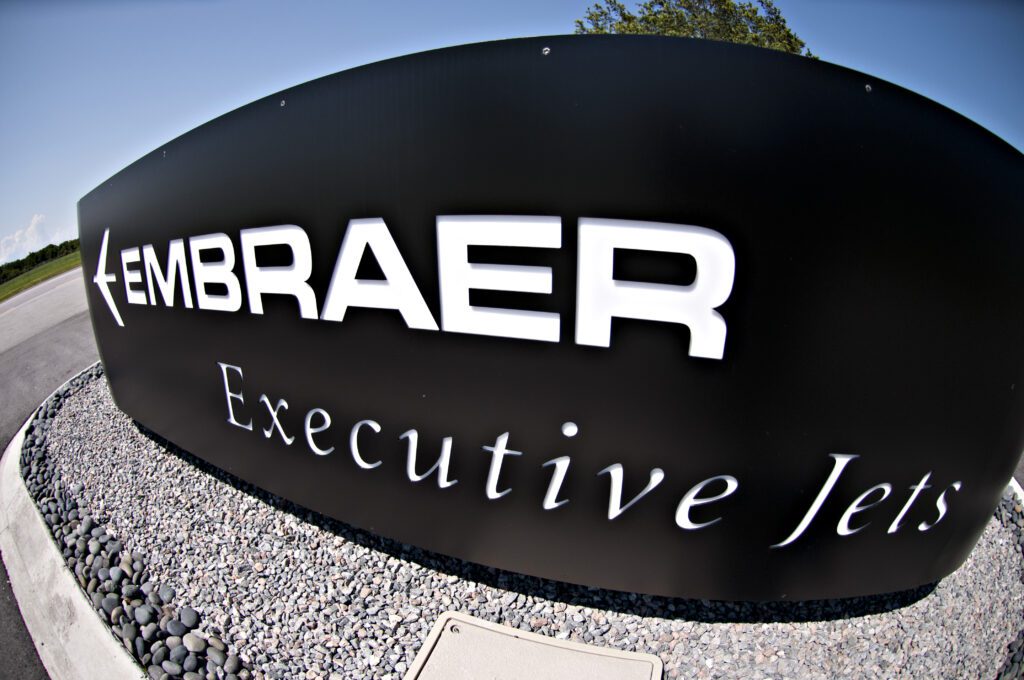Embraer downgraded to Peer Perform from Outperform at Wolfe Research

Wolfe Research has downgraded Embraer (NYSE: ERJ), the Brazilian aerospace giant, from an “Outperform” rating to “Peer Perform,” signaling a shift in the firm’s outlook on the company’s stock. This adjustment, detailed in a research note to investors, comes after a remarkable period of growth for Embraer, with its shares surging 100% over the past year. The downgrade reflects a cautious stance amid concerns over valuation and potential risks on the horizon, despite the company’s strong operational performance and market achievements.
Embraer’s stock has been a standout performer in the aerospace sector, driven by improving operating results, sustained positive free cash flow, and a significant increase in its order backlog. The company, known for its commercial jets, executive aircraft, and defense solutions, has capitalized on a recovering aviation market and growing demand for its fuel-efficient E-Jet E2 series. Just recently, Embraer secured a landmark order from Japan’s ANA Holdings for 15 E190-E2 jets, with deliveries set to begin in 2028, underscoring its appeal in the Asia-Pacific region. Additionally, a $7 billion deal with Flexjet for up to 212 aircraft further bolstered its position in the executive jet market. These milestones have propelled Embraer’s shares to a record high of $56, surpassing Wolfe Research’s previous price target of $53 and marking the stock’s strongest performance since June 2007.
However, Wolfe Research’s downgrade suggests that much of this success may already be priced into the stock. The firm did not provide a new price target, indicating a belief that Embraer’s upside potential has diminished at its current valuation. Analysts highlighted that while they remain positive about the company’s underlying business—citing its operational efficiency and robust backlog—the stock’s rapid ascent leaves less room for further gains. Embraer’s year-to-date increase of 44% has outpaced the broader aerospace sector’s average gain of 9%, as well as the S&P 500, which has declined by 3.5% over the same period. This outperformance, while impressive, has led Wolfe to adopt a more neutral stance.
A key factor in the downgrade is the looming threat of “unpriced tariff risk,” particularly tied to the U.S. administration’s anticipated tariff update on April 2, 2025, dubbed “Liberation Day.” Wolfe Research warns that potential increases in tariffs, possibly including value-added tax rates, could materially impact Embraer’s costs or those of its customers. Given the company’s global supply chain and reliance on international markets, such policy shifts could erode margins or dampen demand, especially if the burden falls on Embraer’s client base.
Despite the downgrade, Embraer’s fundamentals remain strong. The company forecasts an 18% rise in aircraft deliveries for 2025, targeting up to 240 commercial and executive jets, buoyed by sustained demand. Yet, Wolfe Research’s move serves as a reminder that even high-flying stocks face headwinds. For investors, the downgrade tempers expectations, suggesting that while Embraer’s trajectory is solid, its stock may now be fairly valued—caught between its operational triumphs and emerging external risks.
